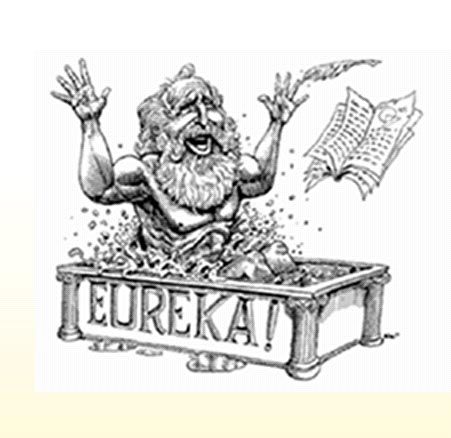As originally written for and published on Technorati
Co-authored by Lillian Pierson
—
The World of Ideas and Patents
Let’s say you’re an enterprise start-up bio-tech company with a team over in the left wing that just happened upon an innovative new solution to a problem that plagues your industry. With this solution, years of hard work may potentially pay-off, but only if the solution is, in fact, novel. To determine
 your solution’s novelty, you will first need to investigate existing patents for evidence of prior art, or innovations which have previously utilized the solution that your team recently discovered.
your solution’s novelty, you will first need to investigate existing patents for evidence of prior art, or innovations which have previously utilized the solution that your team recently discovered.
Let’s say that you search the USPTO’s (United States Patent Trademark Office) database of existing patents and are reasonably certain that your new solution is novel. Believing this, you secure a patent and begin to market the product. Some three months after marketing begins, to your dismay, you receive a legal complaint citing patent infringement and claiming that your newly patented product is not, in fact, novel. What do you do?
In the past, most companies like yours would have to pay high-priced patent attorneys to represent you and to research the validity of the claim being brought against you. It used to be that a scenario like this would spell bankruptcy for a start-up company like yours, but not so anymore.
Enter Article One P artners (AOP) – a company that enables its clients to access the world’s validity evidence to make better patent-related business decisions. Rather than hire high-cost legal counsel to research the case, you can elicit the help of AOP’s international army of high-tech researchers and turn to them for evidence that negates the validity of the claim brought against you. Through AOP, you have access to researchers in 176 countries and studies translated into nine languages. AOP researchers will scour all publications to which they have access, in search of evidence of prior art that will destroy the validity of the patent infringement claim looming against you. Because of this and thanks to AOP, a patent infringement suit no longer has to be a doomsday scenario for the small tech start-up.
artners (AOP) – a company that enables its clients to access the world’s validity evidence to make better patent-related business decisions. Rather than hire high-cost legal counsel to research the case, you can elicit the help of AOP’s international army of high-tech researchers and turn to them for evidence that negates the validity of the claim brought against you. Through AOP, you have access to researchers in 176 countries and studies translated into nine languages. AOP researchers will scour all publications to which they have access, in search of evidence of prior art that will destroy the validity of the patent infringement claim looming against you. Because of this and thanks to AOP, a patent infringement suit no longer has to be a doomsday scenario for the small tech start-up.
You see, while traditional legal practitioners charge upward of $400 per hour and only research English-language records that are within the purview of the USPTO database, AOP offers you something completely new. Resting upon the fact that, regardless of language, date, or country of origin, any publication that references prior art will be valid before the USPTO – AOP is now able to offer you low-cost, in-depth research on records of prior art from the far-reaches of the planet. Gone are the days of paying overpriced legal fees to have patent attorneys perform research on non-comprehensive sets of prior art records. AOP provides you a low-cost army to pull the evidence you need from anywhere it might exist around the world.
Technorati had the opportunity to speak with Cheryl Milone, CEO of Article One Partners (AOP) for a firsthand account of the company’s impact on today’s patent research practices.
Patent Research Meets Crowdsourcing

AOP enables anyone in the world to provide examples of prior art, in contrast to how it has always been done, where clients rely solely on limited Western-world law professionals to pull records of prior art. A patent attorney with USPTO experience, Milone created AOP to support innovation over litigation through this new kind of platform. What makes Article One Partners so unique is the company’s crowdsourcing approach. AOP employs an online global human search engine that connects to more than one million scientists and technologists across the globe. Since AOP’s crowdsourcing of patent research now spans 176 countries, it has become the world’s largest patent research community.
Milone explained how AOP’s community has produced a powerful database of relevant prior art collections, with use cases ranging from pre-litigation defense, to state of the art surveys, gold-plated patent strengthening, licensing, freedom to operate analyses, and others. Milone continues, “Since our launch in 2008, we have found for our clients a remarkably high level (56%) of new paths to invalidity, resulting in stronger settlement positions, and in some cases the elimination of patent litigation assertions altogether.”
According to Milone, AOP has been particularly successful in finding the most difficult, and therefore most valuable, prior art — non-digitized, non-patent, and foreign language. This type of information is almost impossible for traditional searches to uncover and may include tables, figures, photographs, hard-copy materials never-digitized, photos, charts, defunct service manuals or other similar materials.
How It Works
The incentives in this type of research are what make the whole process work. More than the thrill of discovery, or being part of an exciting project, this research pays. For each research project or “Study,” AOP’s researchers can earn up to $5,000. Also available are $100 Most Valuable Researcher rewards and involvement in the company’s profit-sharing program.
An entire livelihood can be made by a good researcher and AOP has enabled success for some very special people. “We’re fortunate to have incredibly skilled and educated researchers working on behalf of our clients,” Milone asserts. One such researcher, 32-year-old Pamela Jackson, was profiled in the Wall Street Journal. The PhD student has earned thousands of dollars by submitting research for 84 studies that were posted by Article One’s clients, with topics ranging from car engines to chemistry.
An entire list of success stories can be found on AOP’s website.
Leveling the Field
 “By accessing our global research community, our clients have higher confidence that they have performed blue chip patent research to look for that haystack-hidden needle,” Milone concludes. “Our community’s work allows our clients to make better patent-related business decisions.” Not only that, it levels the playing field for “the little guy.” Remember our scenario about the bio-tech company? Well what if that little company is up against an industry behemoth in trying to protect its work? In the world of big money, deeper pockets tend to prevail. But AOP changes that.
“By accessing our global research community, our clients have higher confidence that they have performed blue chip patent research to look for that haystack-hidden needle,” Milone concludes. “Our community’s work allows our clients to make better patent-related business decisions.” Not only that, it levels the playing field for “the little guy.” Remember our scenario about the bio-tech company? Well what if that little company is up against an industry behemoth in trying to protect its work? In the world of big money, deeper pockets tend to prevail. But AOP changes that.
The case of Honeywell versus Nest is one such David and Goliath story. Unveiled at CES 2012, the Nest Learning Thermostat was introduced to take your old thermostat into the personalized, smartphone era. This clever device learns your habits and preferences in less than a week, and is then able to adjust its settings just as you like them. But shortly after Nest’s announcement, long-time industry leader Honeywell filed a lawsuit accusing the company of violating several of its patents.
Backed by the AOP research community, Nest is holding its own in this legal battle. While the case is on-going, the company hasn’t backed away from the case for lack of resources or expertise, as it might otherwise do. In fact, Nest is on the offensive with its own counter suits.
The Crowd Is Growing
 The AOP community is growing at record rates both in terms of the number of researchers participating, as well as the number of references being provided. The company’s clients continue to integrate AOP into their operation with a real desire to expand the scope of research. AOP is expanding its service offerings to include studies on pre-litigation and patentability. Milone explains, “These studies help clients get better art so they can write better patents and reduce waste.”
The AOP community is growing at record rates both in terms of the number of researchers participating, as well as the number of references being provided. The company’s clients continue to integrate AOP into their operation with a real desire to expand the scope of research. AOP is expanding its service offerings to include studies on pre-litigation and patentability. Milone explains, “These studies help clients get better art so they can write better patents and reduce waste.”
AOP will soon release tools to give its subscribers access to more detailed insight and analysis, helping clients to quickly determine whether a reference is relevant to their need (such as invalidity) or helping them to construct claims.
So that great idea you once had? Dig it back up and find your inspiration again, because Article One Partners may help you pursue it.
—
Lillian Pierson is the author of Renegade World Travel. Her blog, The Freedom Co-op, is a combination of articles on world travel, technology, wellness, and women in business. You can connect with her on Twitter @LillianPierson



